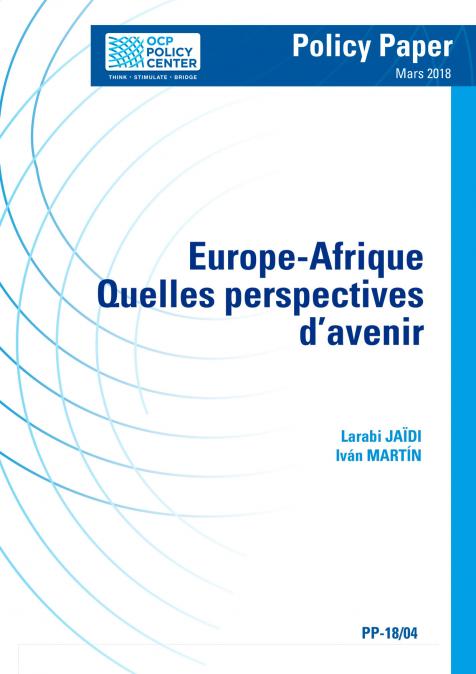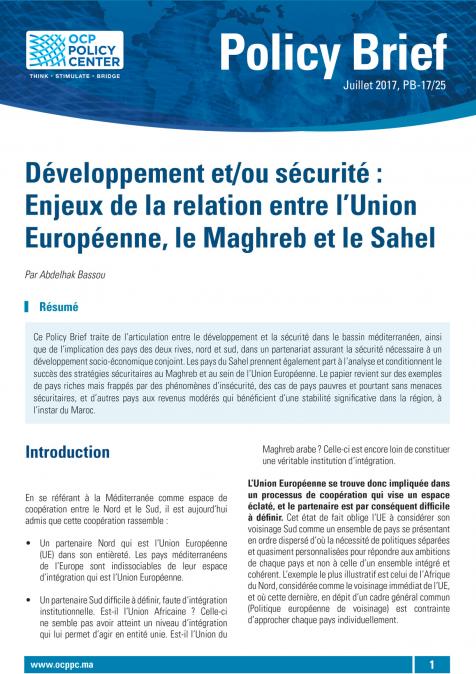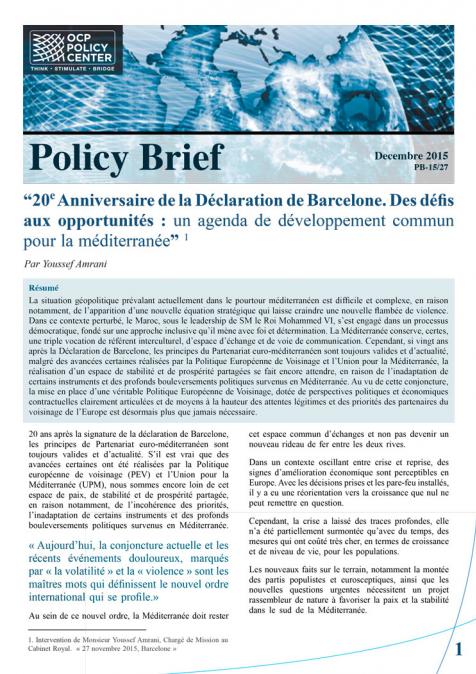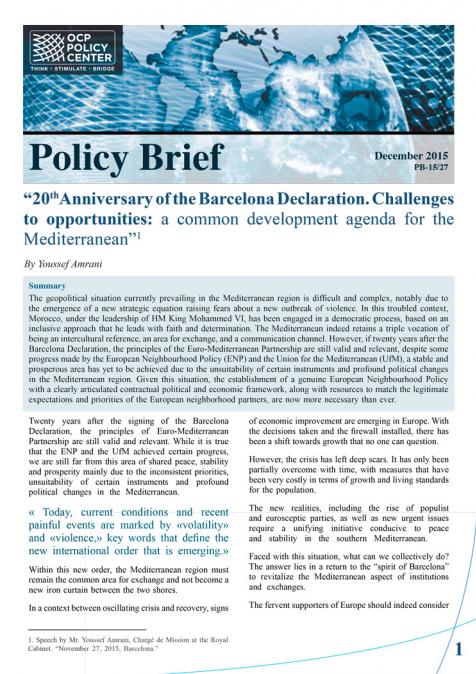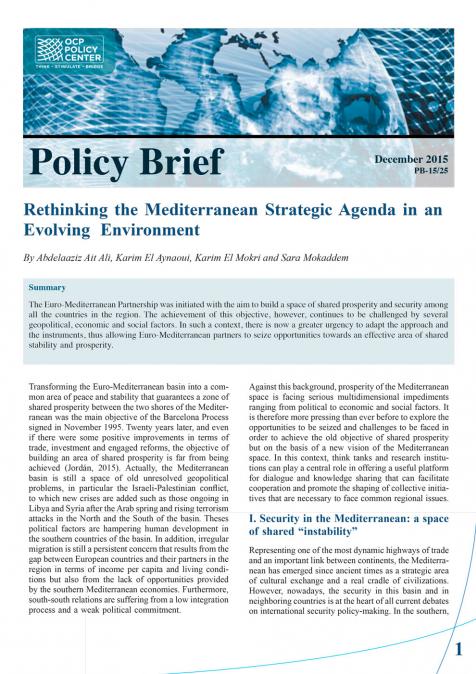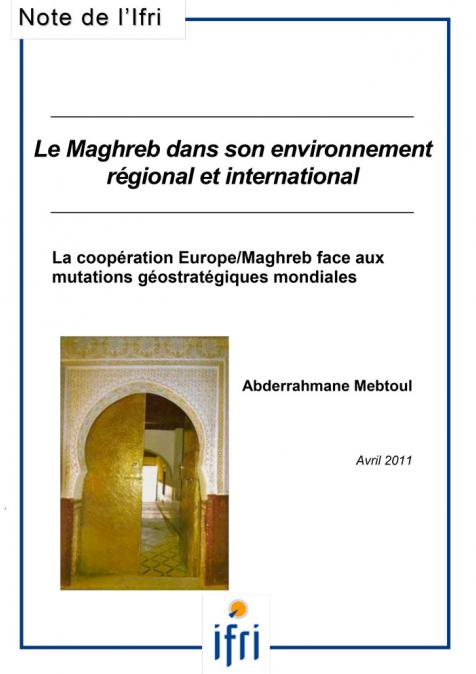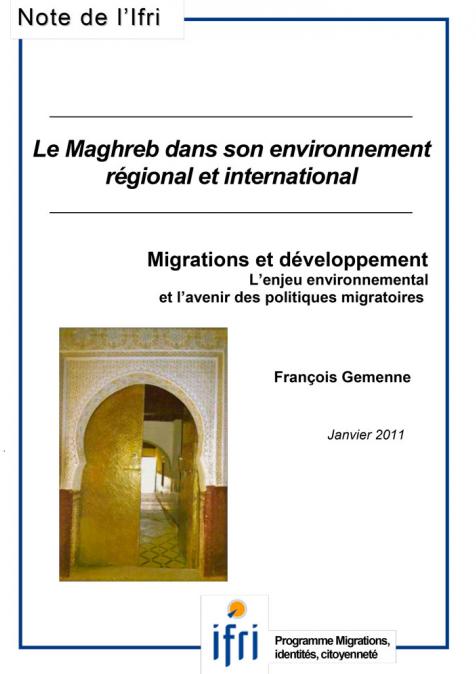Publications /
Opinion
Ursula von der Leyen’s European Commission has placed Africa at the heart of the European Union’s external action strategy, signaling to Washington, Moscow, and Beijing that the “geopolitical commission”[1] intends to carve itself a genuine place in the current rivalry for world leadership. Von der Leyen’s first trip abroad as European Commission president was to the institutional heart of Africa, in Addis Ababa, where she met African leaders and vowed that Africa and Europe will now deal as equals. This mindset should undoubtedly be commended; however, it was hardly a change from similar statements made during the adoption of the first Joint Africa-EU strategy in 2007, or during former European Commission president Jean-Claude Juncker’s reset for Afro-European relations in 2017[2].
The promise of a revamped partnership was developed further when the Commission published, in March 2020, its strategy with Africa, in preparation for the sixth EU-Africa summit. The strategy’s pillars are founded on five key partnerships: (1) green transition and energy access; (2) partnership for digital transformation; (3) sustainable growth and jobs; (4) peace and governance; and (5) migration and mobility. The European Council broadly endorsed the proposal in June 2020, but refocused the priorities around four key issues: (1) promotion of multilateralism; (2) peace, security, and stability; (3) inclusive and sustainable development; (4) sustainable economic growth. But the partnership’s momentum has stagnated, as COVID-19 forced the summit, scheduled for October 2020, to be postponed to 2021, while a mini-summit between African and EU leaders, planned for December 2020, was postponed at the request of the African Union. As of yet, no date for the summit has been fixed for the EU-Africa Summit. It is safe to say that the partnership is now in a place of serious neglect.
Learning from the Pandemic
The pandemic has understandably shifted priorities. Yet, the current state of inaction indisputably diminishes the credibility of African and European leaders as actors with the political will and institutional capacity to push for stronger Afro-European relations. During the pandemic, the asymmetric nature of the relationship between Africa and Europe resurfaced, revealing coordination and coherence problems in the deployment of resources to deal with the pandemic. The crisis should be judged as a unique opportunity to re-balance the partnership. After 18 months of crisis management, now is the time for African and European leaders to urgently re-commit to setting out an ambitious but pragmatic roadmap that reprioritizes strategic objectives and builds a crisis-resilient partnership for joint institutional action in the face of shocks facing both continents. The Africa-EU strategy should respond to immediate problems such as the unequal COVID-19 recovery (especially the unequal access to vaccines in Africa), climate change, and uneven trade exchanges. It should also seek to establish an institutional framework that fosters a common understanding of the history and culture of the parties. More importantly, the strategy’s operability will depend significantly on reciprocity and well-defined institutional roles. The latter could prove the missing ingredient for a genuine partnership based on solidarity.
Develop the Green Potential
A new partnership framework to further ramp up the political ambition entails a change in the approach. The framework must focus on a limited number of priorities that could enable the Africa-EU partnership to sequentially deal with other complex challenges. A key priority must be the fight against climate change. The European Union is now the world leader in climate diplomacy. It unveiled in December 2019 the European Green Deal (EGD), vowing to make Europe the first climate-neutral continent by 2050. That goal has since been enshrined in the European Climate Law, and the EGD can take center stage in developing the Africa-EU partnership.
Establishing an Africa-EU Green Transition Pact that aligns and coordinates national climate actions of European and African states would be a massive stride towards greening the global trade system and designing financing mechanisms that encourage green transition in Africa. Most importantly, the pact should prioritize the development of clean-technology partnerships that accelerate the energy transition and ensure the economic, ecological, and social betterment of African and European populations, provided that norms and rules are agreed.
A sticking point of the Pact will be the EU’s Carbon Border Adjustment Mechanism (CBAM) or carbon tariff, a fundamental pillar of the EGD. The CBAM is mainly intended to protect against carbon leakage as the EU fears that adopting high emissions standards, will push carbon-intensive production outside the bloc and will expose European businesses to unfair foreign competition. Still, the CBAM’s implementation is faced with significant hurdles like making it compliant with WTO rules and the principle of common but differentiated responsibilities of the Paris Agreement [3]. Hence, the EU ought to discuss the finer points of the CBAM with its African partners to design flexible arrangements. This would help tackle perceptions that the CBAM discriminates against developing nations and would enable its internationalization in a multilateral framework that reduces the risk of trade frictions. Otherwise, Europe would only see a reinforcement of the current paradigm in which Africa commits to more strengthened partnerships with non-European powers.
For the Africa-EU Green Transition Pact to succeed, it is critical to monitor and evaluate states’ implementation of climate commitments and to recommend solutions to remedy any insufficiencies. Therefore, setting up an AU-EU Climate Action Committee with the leadership of politicians, economists, high-level civil servants and scientists would prove essential.
Ensure Consistent High-Level Policy Dialogue
Concentrating on a joint climate agenda does not mean neglecting other critical, controversial topics, namely migration and security. These are vital domains for the Africa-EU partnership, and any successful attempt to tackle them depends on adequately reframing them. This can only occur in an environment of consistent high-level policy dialogue that brings the opinions of leaders closer together.
On security, the world is witnessing the end of a cycle—the end of large-scale, long-term Western military interventions. The withdrawal of American troops from Afghanistan, and France’s moribund Barkhane operation, hint that the cycle that began after the September 11, 2001, attacks is coming to an end. This security model was dominant for almost two decades, but did not resolve the most urgent security challenges, especially in Africa. Moreover, the ‘train, advise, and shoot’ model used for security responses in Africa gave little value to developing interactions with violence-affected communities and building transparent oversight when the armies do not meet the strategic objectives.
While the solution cannot only be military, there is a growing belief that the 3Ds formula of ‘development, defense, and diplomacy’ cannot be efficient without genuine political reform. In addition, the latest events in Afghanistan offer an opportunity to reflect on what has been done right and what was not, and to anticipate the upheavals that France’s reduction of military troops in the Sahel may cause, so that the international community’s efforts in stabilizing the Sahel are not jeopardized. Current developments should also lead African and European decision-makers to ponder critical questions about the consequences of non-Western powers taking greater roles in Africa’s security, or if the new security paradigm of the West, based on light, efficient special forces, can efficiently respond to security challenges.
As things stand, security cannot be dealt with based on a business-as-usual attitude. Reconceiving the Africa-EU partnership in security requires consistent high-level dialogue to cultivate shared understandings, develop a common language to describe the objectives, and identify the institutions needed to face the current and emerging security challenges. Yet, the biggest threat to this ambition is more internal than external: the lack of cohesion among member states, in the EU and the AU, prevents common strategic decisions. Security is the Achilles heel of both unions since they were not created to act as powers and they lack the means to act with complete autonomy. So security remains principally the domain of nation states. The question is what security topics should move to a supra-national level of decision-making.
Migration will remain the most contentious issue. The European Commission presented in September 2020 the migration pact and framed it as a balance-driven route to a new system of secure migration, which assigns a prominent place to third countries of origin and transit of migration flows: “The old system no longer works. The Commission’s Package on Migration and Asylum…offers a fresh start. Many legitimate interests have to be brought into balance”[4]. Yet, the pact has given prominence to the security aspect of the management of migratory flows, reducing its humanitarian overtones. Reducing illegal migration flows to Europe requires cooperative mechanisms with third countries that do not focus solely on the externalization of migration controls and the reinforcement of return procedures. Also, the pact’s proposal to facilitate access to European visas for third countries cooperating in the control of migratory flows, while a harsh visa policy would sanction uncooperative countries, could particularly strain relations. Clément Beaune, the French Secretary of State for European Affairs, even acknowledged that this measure could also target political and economic leaders from third countries[5].
Brussels’ strict posture on migration is mainly due to internal political constraints. Many European governments are wary of arousing populist passions among voters who perceive their migration policy as lenient. But Europe and Africa need a migration partnership with more coherent and human policies that protects the interests of all parties, emphasizes the promotion of legal pathways for migration and facilitates mobility. Most importantly, the partnership on migration must operate in an anticipatory logic in order to face future migratory pressures that’ll stem from climate change, health crises, poverty, demographic changes and conflicts.
Fostering a strong Africa-EU partnership will be a long and difficult process. The pandemic has highlighted the urgency of matching words with bold initiatives, and ending the persistence of an unbalanced and crisis-prone partnership. African and European leaders should start by exploring less vague and more focused priorities to develop a more comprehensive strategy for the future.
The opinions expressed in this article belong to the author.
[1] Speech by President-elect von der Leyen in the EP, 27 November 2019. European Commission.
[2] State of the Union 2017 address by Jean-Claude JUNCKER. President of the EC. European Commission.
[3] Dadush, U. The EU’s Carbon Border Tax is Likely to do More Harm than Good. June 2021. Policy Center for the New South
[4] Press statement by President von der Leyen on the New Pact on Migration and Asylum. September 23, 2020. European Commission.
[5] Faure, J. La France menace les pays qui refusent de reprendre leurs ressortissants de réduire leurs visas. 15 Novembre 2020. LCI.


